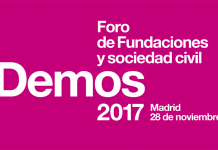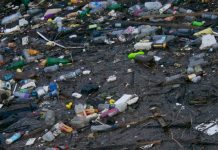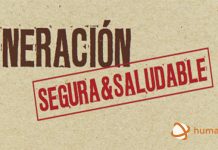In a joint statement, over 50 church and civil society leaders from all continents call on world leaders meeting at the UN Conference on Sustainable Development ‘Rio+20’ (Rio de Janeiro, 20-22 June 2012) to take action for a sustainable and just world.
A delegation of church and civil society leaders, organised by the international alliance of Catholic development agencies CIDSE, will attend the Rio+20 talks demanding lasting changes to foster sustainable development and eradicate poverty.
“Our global system is unsustainable and unjust, but it would be a mistake to believe that slight compass adjustments will get us out of harm’s way. Instead, Rio+20 should take a new path towards equitable development and full respect of human rights, towards a truly human life for all human beings in harmony with creation,” CIDSE Secretary General Bernd Nilles said.
Read the full statement in EN–FR–ES–PT
—
More about CIDSE and the Rio+20 talks:
Official UN side-event:
“Sustainable Intensification” and Agroecology: Which approaches work for the right to food, climate, and sustainable development?
Date: 19 June 2012
Time: 9:30-11:00
Venue: T-8 RioCentro
This event is co-organised with Misereor, IATP, AS-PTA and SECAM.
Our events at the People’s Summit in Rio de Janeiro:
Alternative development paradigms: Viable proposals – 18 June 2012 9:15-12:45 Religions for Rights, Central tent (date/timing tbc). Co-organised by CIDSE, People’s Dialogue, Franciscans/SINFRAJUPE, Iser Assessoria, Trade-Finance Network
Climate Smart Agriculture – A smart solution? – 16 June 2012 9.15-11.15 am Religions for Rights (date/timing tbc). Co-organised by CIDSE, CCFD Terre Solidaire, Misereor, SRD – Sustainable Rural Development, EAA – Ecumenical Advocacy Alliance
The Future of Food Governance Includes People – 15 June 2012 5.30 -7.00 pm Religions for Rights (date/timing tbc). Co-organised by CIDSE, CCFD Terre Solidaire, International Civil Society Mechanism Food Security and Nutrition, EAA – Ecumenical Advocacy Alliance
The church and civil society leaders statement will be presented to press on Sunday 17 June 2012 at 12.30 after holy mass in the Cathedral of Rio de Janeiro (Av. Chile, 245 – Centro – Rio de Janeiro).
For more information about these and other CIDSE events in Rio visit www.cidse.org/rioplus20
The delegation
The CIDSE High-Level delegation in Rio de Janeiro (between 15-23 June) includes the following Church and Civil Society leaders from the North and South:
Church Leaders:
Mgr Guilherme Antônio Werlang, Bishop of Ipameri, Goias (Brazil)
Mgr Gabriel MBILINGI, Vice-President of SECAM and Archbishop of Lubango (Angola)
Mgr Paul OUEDRAOGO, Archbishop of Bobodioulasso (Burkina Faso)
Mgr Paul BEMILE, Bishop of Wa (Ghana)
Mgr Theotonius Gomes, Auxiliary Bishop of Dhaka (Bangladesh)
Mgr Josef Sayer (Germany)
Civil Society Leaders:
Bernd Nilles, Secretary General of CIDSE
Justin Kilcullen, Director of Trocaire (Ireland)
Sergio Marelli, Secretary General of FOCSIV (Italy)
Xavier Ricard, Director of International Partnerships CCFD-Terre Solidaire
Moema de Miranda, Director of IBASE (Brazil)
Salamatou Gazéré Dotia, Synergie Paysanne (Benin)
Mamadou Goïta, ROPPA (Mali)
Prof. Johannes Müller, MISEREOR (Germany)
Br. Rodrigo de Castro Amédée Peret, OFM-Franciscans (Brazil)
Jenny Gruenberger-Perez, Director LIDEMA (Bolivia)
Regina «Nanette» Salvador-Antequisa, Director ECOWEB (Philippines)
Damiao Paridzane, Terra Indígena Marãiwatsédé (Brazil)
Azra Sayeed, Roots of Equity (Pakistan)
CIDSE’s Rio+20 recommendations:
In ‘The Changes We Need for the Future we Want’, CIDSE says that to achieve real lasting change and to eradicate poverty, alternatives to Gross Domestic Product (GDP) measurement which include both social and non-material aspects of well-being are urgently required. The paper calls for a greater emphasis on ‘going local’, promotes the concept of ‘having enough’, and discusses the role of the ‘green economy’, a concept which fails to address structural problems such as overall levels of resource consumption based on the pursuit of growth. It also makes recommendations for the contents and process of a sustainable development framework which should tackle interlinked global challenges like poverty eradication, sustainability, climate change and economic inequalities.
CIDSE’s recommendations for the summit are available in English, French, Italian, Portuguese and Spanish.

























